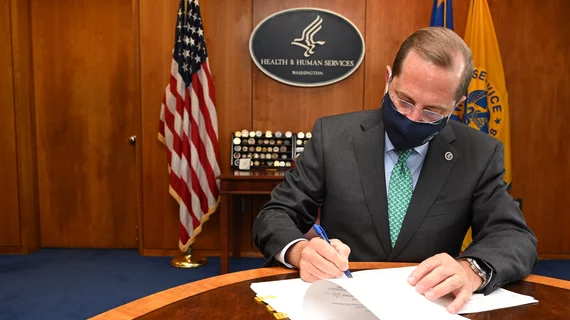HHS officially extends COVID-19 public health emergency again ahead of upcoming expiration date
Health and Human Services has officially extended its COVID-19 public health emergency declaration for another 90 days ahead of the Oct. 23 expiration date.
Secretary Alex Azar recently shared news of the renewal, which comes with several policy implications for physicians that would have disappeared by the end of the month. This is the third such extension and will maintain the emergency declaration into January of 2021.
“We will continue our whole-of-America response to the virus and continue our work to ensure Americans have access to the care they need,” Azar tweeted on Oct. 2.
HHS last renewed the declaration in July at the urging of the American College of Radiology and other provider groups. ACR highlighted the extension in an update to members posted on Monday, noting that it comes with crucial implications related to telehealth, Medicare and Medicaid blanket waivers and interim final rule policies.
“We need to ensure all physician practices have access to continued federal public health emergency protections to reassure patients that they will continue to have uninterrupted access to these valuable services,” Cynthia Moran, ACR’s executive VP of government relations, economics and health policy, told Radiology Business back in June ahead of the second renewal.

